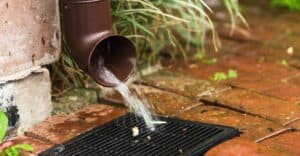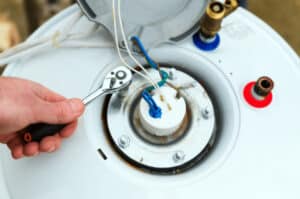Whether you’re a first time home owner or have owned a home for many years, there are some important things that we believe every homeowner should know. As a San Diego plumbing company with many years in the business, here are our top 7 plumbing tips to keep in mind.
1. Main water shut-off valve: Everyone in the house should know where this is in case of an emergency. The valve should operate smoothly and should shut-off water completely. Many older valves fail to operate due to internal deterioration from lime and calcium buildup.
2. Check the water meter periodically: The meter is usually located under a concrete lid out by the sidewalk. With no water running in the house, the dials on the meter should remain stationary. Any movement indicates a leak of some type which, at best, wastes water and costs money, and may be causing damage to your home and foundation. A warm spot on the floor is also an indication of an underground leak.
3. Angle-stops: These are the small shut-off valves at each toilet, and under each sink. Examine these for signs of corrosion, as they hold back water pressure. Corroded valves and connectors often become the source of leaks, ruptures, and resultant flooding.
4. Guest bathrooms: Turn on all faucets and tub/shower valves at least once weekly. Faucets in guest baths commonly seize up from mineral deposits when not used for a period of time. Also, running water into each fixture keeps the traps full, thereby preventing sewer gases from entering your home.
5. Washing machine hoses: Check hoses and connections for corrosion and signs of “blow-out”, which is a bubble caused by reinforcement failure. We recommend stainless steel re-enforced hoses which are rated to withstand much higher water pressure. Ruptured washer hoses are a primary cause of flooding in residential homes.
6. When buying faucets and fixtures: Certain brands withstand the water related issues common to San Diego County better than others. Availability of repair parts is also an important consideration. Please feel free to call us if you have questions, or would like our recommendations.
7. Water Pressure: Every good doctor checks your blood pressure, and every good plumber checks your water pressure. Many homeowners describe high pressure as good pressure. Nut unlike your blood-pressure, high water pressure can eventually cause great damage. Symptoms of high pressure may be running toilets, noisy or banging pipes, and water that comes out of the faucet strong at first, then slows down. A failed pressure regulator is usually the culprit and can be replaced at a reasonable cost.

.svg)

